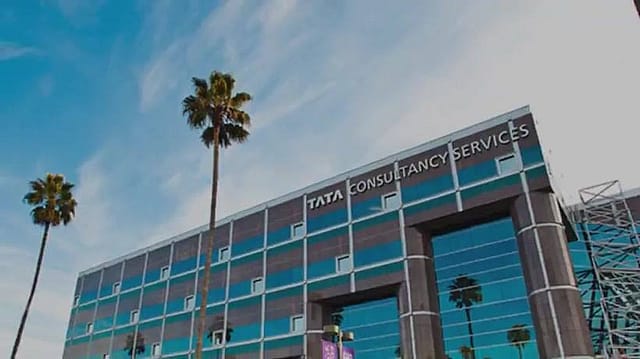The going may get tough for TCS
ADVERTISEMENT

For several quarters now, India’s most valuable company Tata Consultancy Services (TCS) has deftly parried questions on how the impending global slowdown was affecting its business. Its performance seemed to suggest nothing was amiss as the Mumbai-based IT services major posted double-digit growth for the previous four consecutive quarters. However, announcing the second-quarter results on Thursday, the company said that it had positioned itself for higher growth and the operating margin fell because growth was lower than expected.
In the second quarter, TCS’ revenue increased 5.8% year-on-year (YoY) to ₹38,977 in the July-September quarter as against ₹36,854 crore in Q2 of the last fiscal. Its profit for the period grew 1.8%, but what unnerved analysts was the 4.2% drop in the operating margin. They had expected an operating margin of ₹9,933 crore for the quarter but the company reported only ₹9,361 crore. That is a variance of nearly 6%. Further, a drop in operating margin YoY is a rare occurrence at TCS—it’s happened only twice in the last decade.
An analyst with a foreign brokerage, who did not wish to be named, says, “There was no indication given even after the first quarter results about any stress on its profitability and therefore, it appears to be sudden changes in external factors that have led to a drop in profits.”
Also, among the industry segments it caters to, financial services—which contributes to a big chunk of its revenue—was a laggard last year and remains one this year, too. The company said that retail and consumer packaged goods sectors also contributed to the fall in growth in the second quarter.
However, not everything looked bad. Digital revenues now make up 33% of the overall revenues, growing 28%. Business from the U.K. grew 13.3% YoY. From continental Europe it grew 16%, balancing the slower growth of 5.3% in the U.S., its biggest market.
A recent report by BNP Paribas summed up the situation as “macro gloom but no major alarms yet”. The report saw a potential global and U.S. GDP slowdown—the latter now evident from the U.S. manufacturing and services data show—remain the key risk for corporate IT services spending. It said news from BFSI (banking and financial services), retail, and healthcare (bankruptcies, large legal settlements) looked bad. That report predicted that YoY revenue growth will gradually decelerate for large-cap IT companies though it didn’t see any major client-specific alarms for any of them.
Low growth in revenue this quarter will certainly make it difficult for the company to achieve double-digit growth in the financial year, a target set by Rajesh Gopinathan, CEO and managing director of TCS. “We’ve seen an increase in both deal sizes as well as duration, which is good for long-term growth. But it will take time for it to convert into revenues. We would need to deliver H2 much higher than H1 to get to double digits,” says Gopinathan.
A day after the announcement of its results, TCS shares fell 1% but the market seems to have already anticipated the poor performance. In the recent rally, TCS was among the few large-cap stocks that did not increase in value and its share prices have been falling since mid-August, losing more than 10% of its value.
Notwithstanding its performance, TCS announced a special dividend of ₹40 per share along with a regular ₹5 this quarter. Earlier, the company had announced a share buyback programme which had to be shelved after the government announced a 20% tax on buybacks.